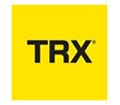GABA – although not very well known, it is considered to be one of the most important proteins supporting nerve function, muscle movement as well as linked to stress management including higher alcohol dependencies.
We will take a closer look at GABA – what is it, what are the benefits, what happens when you have a lack of it, what foods are high in GABA, any side effects and who should use it.
What is it?
Gamma-Aminobutyric Acid known as GABA, is the main inhibitory neurotransmitter in the brain.
It is a naturally occurring amino acid that has strong interactions with the parasympathetic nervous system (the part of the nervous system that creates the feeling of calmness and relaxation).
What are the benefits?
Gamma-aminobutyric acid is a neurotransmitter that has been shown to exhibit a wide variety of positive effects.
It promotes sleep by slowing down brain activity and reducing muscle tension, also decreasing heart rate and blood pressure. It does that by reducing the excitability of neurons in the central nervous system. This, in turn, decreases anxiety and even anger, irritability, and insomnia!
The intake of GABA supplements has been shown to significantly reduce stress levels as well as improve mental clarity for those suffering from depression or anxiety.
Here is what you should expect when increasing your intake:
- Getting back to the baseline, relaxed and peaceful state
- Less stress and anxiety
- Less irritability, more emotional control
- Better sleep
- Improved cognitive function
What happens when you have a lack of GABA?
GABA helps create a sense of calm and relaxation, and logically, its deficiency will lead to the exact opposite – a heightened perception of stress, feelings of anxiety, and worry can be common symptoms, leading to alcohol cravings. Alcohol targets GABA receptors and mimics the effect of this neurotransmitter, helping to relax the mind and body.
What foods are high in GABA?
- Fish and shellfish
- Beans and lentils
- Sprouted whole grains (especially brown rice)
- Potatoes
- Tomatoes
- Seaweed
- Noni fruit
- Berries
Any side effects?
Given the research in this amino acid (protein) is relatively new in the world of health, there isn’t really a proper body of research to pinpoint some possible side effects of GABA. However, there have been reports by users that include side effects, such as:
- Sleepiness
- Mild headaches
- Worsened athletic output
So make sure you:
- Take GABA within the recommended dosages.
- If you take any other supplements/medication, advise your doctor!
- Don’t take GABA on a daily basis – Rather, when you feel overwhelmed/stressed out.
- Advise with a medical professional if you are pregnant/nursing
Who should use it?
Consider using GABA if you are someone who…
- Has many stress factors in their life
- Has trouble with mood-management
- Is generally anxious
- Can’t sleep well
- Is easily irritable
When taking supplementation, GABA supplements can be effective but need precursor ingredients like grape seed & rosemary extracts to be fully absorbed.
Cameron Corish has been caring and achieving results for the local Wishart, Mansfield and Mt Gravatt community for over 10 years. Together with the Core Health Coaching Team, he takes a multi-disciplined and holistic approach to health and fitness addressing the physical, mental and emotional aspects of one’s health.
Ready to feel and look your best? Come in for a FREE chat and see how we can transform your life. Call 0406 451 907 or email Cameron at cameron@corehealthcoaching.com.au















Speak Your Mind